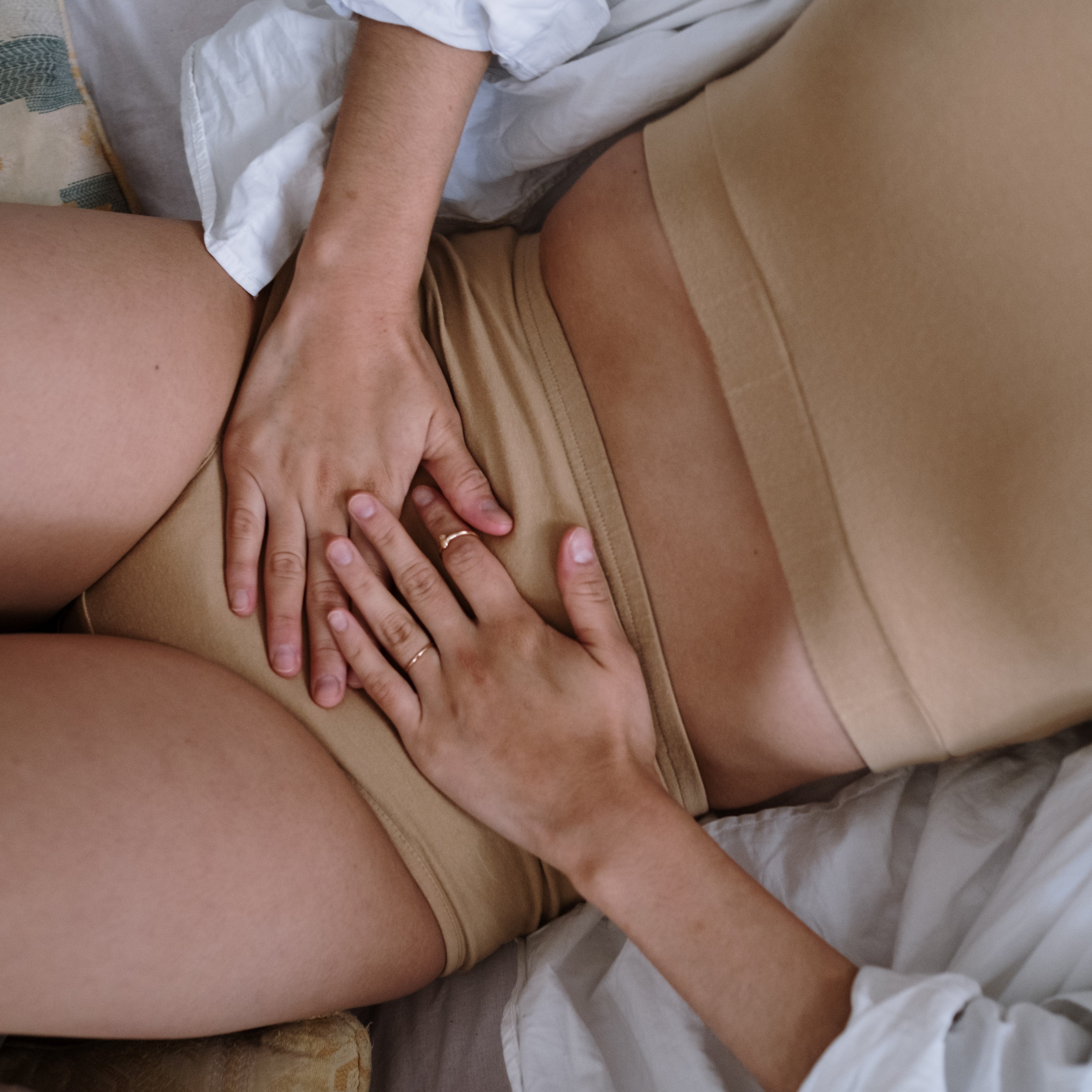
If you’ve ever experienced a bloated belly or the heavy feeling that often accompanies it, you know what a (literal) pain it can be. If you’ve noticed that you tend to bloat at a certain time in your cycle, trust us, you’re not alone.
Hormonal bloating is real - according to the Cleveland Clinic, up to three quarters of those who menstruate experience bloating related to hormone fluctuations in their cycle. This can range from a feeling of tightness or fullness in the abdomen to a visibly distended belly.¹
The reason? Estrogen causes water retention, so when estrogen spikes and your progesterone drops (which usually happens in the week before your period) you’ll notice a considerable uptick in belly bloat. Not to mention your uterus is at its largest right before menstruation leading to even more bloat. Your hormones also interact with your digestive system, which is where imbalances can lead to bloating that is both a GI issue and a hormonal issue.²
The reason? Estrogen causes water retention, so when estrogen spikes and your progesterone drops (which usually happens in the week before your period) you’ll notice a considerable uptick in belly bloat. Not to mention your uterus is at its largest right before menstruation leading to even more bloat. Your hormones also interact with your digestive system, which is where imbalances can lead to bloating that is both a GI issue and a hormonal issue.²
While belly bloat isn’t usually a cause for medical concern, it can take a real toll on how you feel about your body. No one wants to look like they’re smuggling a water balloon under their shirt, nor does anyone love the uncomfortable feeling of a bloated stomach.
Luckily, there are lifestyle changes you can start making today to beat the bloat and start feeling like yourself again. Here are some of our favorite natural remedies:
Drink plenty of water
While it might seem counterintuitive, drinking more water is actually a remedy for bloating, not a cause.³ Why? Because it helps flush the body of excess sodium, which is the real reason your body is retaining so much fluid. You should aim to drink ½ of your bodyweight in ounces of water per day (128lbs = 64oz. water).
Slash the salt in your diet
Watching your sodium intake is one of the best ways to ensure you aren’t retaining so much water (and feeling so bloated) the week before your period.⁴ Generally, the salt that you add to your own food isn’t the culprit, but processed foods often contain huge amounts of added sodium. Reading your food labels, or better yet, buying whole foods that don’t require food labels, will help you curb your sodium intake to beat bloat.
Start seed cycling
Seed cycling is an excellent way to make sure your hormones are balanced throughout your menstrual cycle, leading to fewer hormonal symptoms, including bloating. In beeya’s beta test, 79% of women saw a decrease in bloating over a three month period.
Cut back on caffeine and alcohol
While you’re drinking more water, you may want to cut back on other beverages such as alcohol and coffee. According to studies, the more alcohol and caffeine you consume, the more likely you are to experience moderate to severe PMS symptoms, including bloating.⁵ We’re not saying you need to become a teetotaler, but small changes in your daily drinking habits can have a significant effect on your health.
Pack in more potassium
Foods rich in potassium and soluble fiber (think bananas, sweet potatoes, avocados, beans, lentils, seeds, beets) help the body to reduce inflammation and flush out excess sodium. Fiber is also important in keeping your bowel movements regular, another factor that can contribute to belly bloat.
Of course, if your bloating is constant or severe, there may be other issues that require your doctor’s attention. However, if you’re experiencing it with the ebb and flow of your period, hormones are likely to blame and hopefully these tips will help!
Sources Referenced:
¹ Cleveland Clinic - Bloated Stomach
² Cleveland Clinic - Bloated Stomach
³ PMID: 20646222
⁴ Doi: 10.14309
⁵ PMID: 8410870
